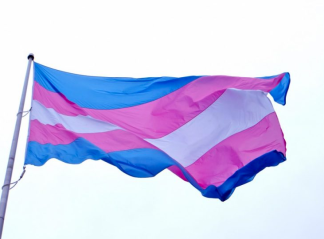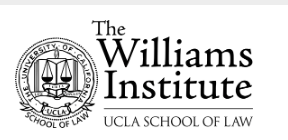HB 1612 Would Also Create Costs for State Businesses, Budget and Economy
 On January 11, a Virginia lawmaker offered House Bill 1612 (HB 1612), which would require transgender people to use bathrooms in public schools, government buildings, and public universities based on “sex,” as determined by one’s “original birth certificate.” Additionally, the bill would require schools to inform parents or guardians within 24 hours if their child seeks “to be recognized or treated as the opposite sex, to use a name or pronouns inconsistent with the child’s sex, or to use a restroom or changing facility designated for the opposite sex.”
On January 11, a Virginia lawmaker offered House Bill 1612 (HB 1612), which would require transgender people to use bathrooms in public schools, government buildings, and public universities based on “sex,” as determined by one’s “original birth certificate.” Additionally, the bill would require schools to inform parents or guardians within 24 hours if their child seeks “to be recognized or treated as the opposite sex, to use a name or pronouns inconsistent with the child’s sex, or to use a restroom or changing facility designated for the opposite sex.”
HB 1612 would negatively impact over 34,000 transgender adults in Virginia. Virginia ranks 24th in the United States in terms of adults who identify as transgender (0.55 percent) and over 40 percent of transgender adults in Virginia are People of Color, including 25 percent who identify as non-Hispanic Black or African-American and 10 percent who identify as Hispanic or Latino.
In addition, HB 1612 would negatively impact transgender youth and young adults in the state. Virginia is home to 5,150 transgender adults aged 18 to 24, and thousands of transgender youth under 18. With its focus on schools, HB 1612 would mean that transgender students in Virginia could not fully participate in their education. Additionally, HB 1612’s specific mandate to inform parents of children’s requests to even use a gender nonconforming name may out transgender and gender exploring youth in a home environment that may or may not be supportive. Further, research shows that limiting access to restrooms creates health problems for transgender people and exposes them to harassment and bullying.
In response to the 2011 National Transgender Discrimination Survey, 74 percent of Virginians who expressed a transgender identity or gender non-conformity while in grades K-12 reported experiencing harassment, 35 percent reported physical assault, and 25 percent reported sexual violence. Harassment was so severe that it led 11 percent to leave a school in K-12 settings or leave higher education.
HB 1612 would add to an already challenging legal environment in Virginia. Virginia currently lacks a state law that prohibits discrimination on the basis of sexual orientation and gender identity, and HB 1612 would undermine the limited existing protections. At least one locality in Virginia – Charlottesville – prohibits discrimination based on sexual orientation and gender identity in employment, and a statewide executive order protects state government workers from discrimination on such bases. Approximately 94 percent of Virginia’s workforce, however, is not covered by these laws, and HB 1612 would undermine the existing protections by requiring government entities to discriminate against transgender people.
By moving toward exclusion and away from inclusion, HB 1612 would contribute to the discriminatory environment that LGBT people face at school, in the workplace, in housing, and in public life – creating health and economic disparities for LGBT people in the state and taking a significant toll on LGBT youth in particular. HB 1612 also conflicts with federal laws, the laws of other states, and the policies of most large companies. At least twenty-three of the thirty Fortune 1000 companies based in Virginia have policies prohibiting discrimination based on sexual orientation, and at least twenty-one of them also prohibit discrimination based on gender identity. In response to a national poll conducted in 2011, 81 percent of respondents from Virginia said that employment discrimination based on sexual orientation and gender identity should be prohibited in the U.S.
As a result of HB 1612, Virginia would risk the following economic impacts:
-Loss of Business Investment – The loss of hundreds of millions of dollars of business investment, leading to the loss of thousands of jobs – an impact that other states, such as North Carolina, have experienced when they passed laws that discriminate against LGBT people.
-Reduced Travel and Tourism – The loss of millions of dollars of travel, tourism, and event spending that would support local jobs and state and local tax revenues.
-Costs of Litigation and Enforcement – Significant costs in pursuing and defending litigation and enforcement actions related to HB 1612. HB 1612 may give rise to litigation against the state because it conflicts with federal law. In addition, HB 1612 allows individuals to bring lawsuits against government entities that fail to properly enforce the bathroom requirements against other citizens. The state could be required to pay significant damages to individuals if they are successful in these suits, as well as attorneys’ fees, which could outpace damages.
-Loss of Federal Funding – The loss of over billions of dollars in federal contracts and grants, including $1.9 billion in funding for Virginia schools, colleges, and universities as a result of conflicts between HB 1612 and federal non-discrimination laws.
Further, a growing body of research finds that supportive workplace policies and practices have a positive impact on employer outcomes. By adding to an already challenging environment for LGBT people and conflicting with the very limited protective local law and executive orders related to gender identity nondiscrimination, HB 1612 would undermine the advantages of diversity in the workplace, erode worker productivity, and make talented LGBT and non-LGBT employees in Virginia more difficult to recruit and retain:
-Productivity – Research shows that a poor legal and social climate can mean that LGBT workers are less likely to be openly LGBT at work and more likely to be distracted, disengaged, and less productive.
-Retention – When LGBT workers are in less supportive workplaces, they feel less employer loyalty and are more likely to leave. Each LGBT employee who leaves a job in Virginia would cost thousands of dollars to replace.
-Recruitment – Many LGBT and non-LGBT workers, in particular millennials, prefer to work for LGBT-inclusive companies and in states with more supportive laws. HB 1612 would make it harder for Virginia to attract the best and brightest.
 The Williams Institute, a think tank on sexual orientation and gender identity law and public policy, is dedicated to conducting rigorous, independent research with real-world relevance.
The Williams Institute, a think tank on sexual orientation and gender identity law and public policy, is dedicated to conducting rigorous, independent research with real-world relevance.
Reblogged this on Fairy JerBear's Queer/Trans Musings From The City Different – Santa Fe, NM and commented:
Speaking out against transphobic law proposed in Virginia.